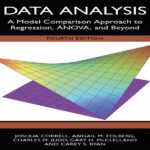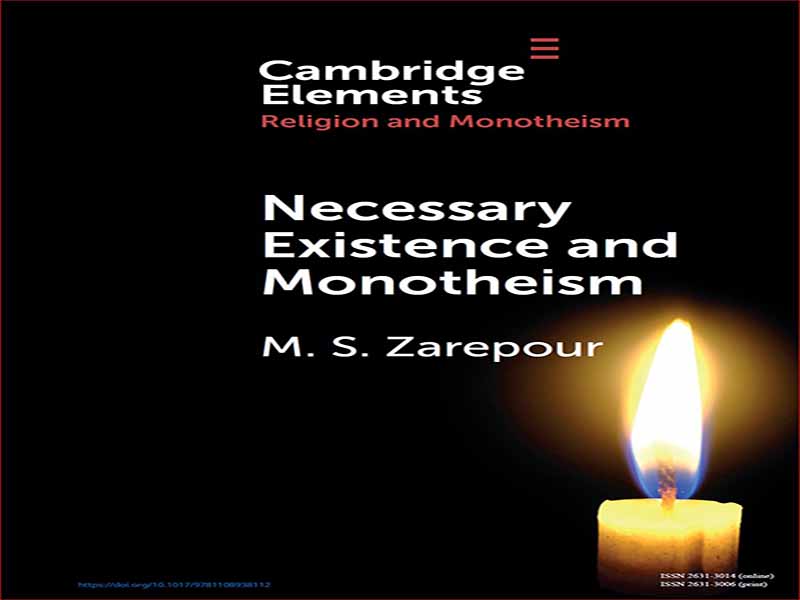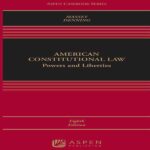- عنوان کتاب: NECESSARY EXISTENCE AND MONOTHEISM
- نویسنده: Paul K. Moser
- حوزه: اسلام
- سال انتشار: 2022
- تعداد صفحه: 70
- زبان اصلی: انگلیسی
- نوع فایل: pdf
- حجم فایل: 1.23 مگابایت
سنگ بنای ایمان اسلامی، صرف نظر از تفسیر آن توسط شاخه های مختلف اسلام، توحید است: خدای یگانه و یگانه ای وجود دارد که زمینه نهایی همه چیز در عالم است. «لا اله الا الله» – یا همان طور که در قرآن (37: 35 و 47: 19) بیان شده است، لا اله الا الله – اساسی ترین ادعایی است که هر مسلمانی باید بر آن گواهی دهد و آن را تأیید کند (شهادا). پیام توحید الهی در آیات دیگر قرآن نیز با عبارات کمی متفاوت بیان شده است: عبارت «ما من اله الا الله» (3: 62 و 38: 65) و «لا اله الا هووا» (2: 163، 2: 255). و غیره) مثلاً در قرآن به ترتیب دو و بیست و شش بار تکرار شده است، یعنی باز هم به ترتیب «لا اله الا الله» و «لا اله الا او» است. تکرار این مفهوم نشان از نقش بی نظیر و تعیین کننده ای است که در تار و پود اعتقادات اسلامی ایفا می کند. بنابراین جای تعجب نیست که از منظر قرآن، انکار یگانگی خدا (شیرک) یا شریک (شریک) برای او تنها گناهی است که خداوند هرگز نمی بخشد: به راستی که خداوند شریکی را نمی بخشد. او را، ولى كمتر از آن را براى هر كه بخواهد مى بخشد، زيرا هر كس براى خدا شريك قرار دهد گناهى بزرگ ساخته است. (4: 48) بدین ترتیب فهمیده شد که توحید بیان اسلامی توحید است; بر این اساس، شرک – مخالف توحید – را می توان بیان شرک دانست. بنابراین، آیه ذکر شده نشان می دهد که پیام اساسی اسلام نفی شرک و تأیید توحید است. در واقع، با تلفیق این مشاهده با مضمون آیات دیگر، می توان ادعا کرد که از دیدگاه قرآن، دیندار بودن به طور کلی دقیقاً به معنای پذیرش یگانگی خداوند است. قرآن میفرماید: «إِنَّ الدَّینَ عَلَیْهِ اللَّهِ الاسلام» (3: 19). اگر «اسلام» را منحصراً به دین پیروان حضرت محمد (ص) تعبیر کنیم، کل عبارت باید به این معنا باشد که در نزد خداوند، دین واقعی اسلام و پیروان سایر ادیان (از جمله) است. یهودیت و مسیحیت) را نمی توان افراد واقعاً مذهبی در نظر گرفت. با این حال، چنین تفسیری غیرقابل قبول است، زیرا حداقل یک شخصیت مهم – حضرت ابراهیم – قبل از زمان حضرت محمد (ص) می زیسته است و با این حال قرآن او را به عنوان یک مؤمن واقعی به اسلام توصیف می کند – یعنی یک مسلمان (3: 67). . این نشان میدهد که در متن قرآن، اسلام و مسلمین باید معنای وسیعتری نسبت به اصطلاحات اسلام و مسلمان داشته باشند که در طبقهبندی اجتماعی-فرهنگی ادیان درک میشوند. در واقع، معنای لغوی اسلام، که به نظر می رسد در متن قرآنی بهتر می گنجد، تسلیم (خداوند) است. در اين تفسير، مسلمان کسي است که واقعاً تسليم خدا و دستورات او شده است. چنین تسلیم قلبی تنها در صورتی قابل قبول است که خدایی جز او نباشد.
The cornerstone of Islamic faith, regardless of its interpretation by different branches of Islam, is tawḥīd: there exists one and only one God Who is the ultimate ground of everything in the universe. ‘There is no god but God’ – or, as it is expressed in the Quran (37: 35 and 47: 19), lā ilāh illa Allāh – is the most fundamental claim that every Muslim must testify to and endorse (šahāda). The message of divine unity is also conveyed in other Quranic verses with slightly different wording: the phrases ‘mā min ilāh illa Allāh’ (3: 62 and 38: 65) and ‘lā ilāh illa Huwa’ (2: 163, 2: 255, etc.), for example, are repeated respectively two and twenty-six times in the Quran, meaning, again respectively, ‘there is no god but God’ and ‘there is no god but He’. The repetition of this notion is a sign of the unique and crucial role it plays in the web of Islamic beliefs. It should therefore come as no surprise that, from the Quranic perspective, denying the unity of God (širk) or ascribing to Him a partner (šarīk) is the only sin that God never forgives: Truly God forgives not that any partner be ascribed unto Him, but He forgives what is less than that for whomsoever He will, for whosoever ascribes partners unto God has surely fabricated a tremendous sin. (4: 48) Thus understood, tawḥīd is the Islamic expression of monotheism; accordingly, širk – the opposite of tawḥīd – can be construed as the expression of polytheism. The verse just quoted therefore highlights that the fundamental message of Islam is the denial of polytheism and the endorsement of monotheism. Indeed, conjoining this observation with the content of other verses, it can be argued that, from the point of view of the Quran, to be a truly religious person in general is precisely to accept the uniqueness of God. The Quran states that ‘ʾinna al-dīn ʿind Allah al-islām’ (3: 19). If we interpret ‘islām’ as referring exclusively to the religion of the followers of the prophet Muhammad, then the whole phrase must be understood as emphasising that, in the sight of God, the true religion is Islam and the followers of other religions (including Judaism and Christianity) cannot be considered truly religious people. Such an interpretation is implausible, however, because at least one significant figure – the prophet Abraham – lived before the time of the prophet Muhammad and yet the Quran describes him as a true believer in islām – that is, a muslim (3: 67). This shows that in the context of the Quran, islām and muslim must have a broader meaning than the terms Islam and Muslim as they are understood within the sociocultural categorisation of religions. Indeed, the literal meaning of islām, which seems to fit better into the Quranic context, is submission (to God). On this construal, a muslim is a person who has truly submitted to God and His commands; such wholehearted submission is plausible only if there is no god but He.
این کتاب را میتوانید از لینک زیر بصورت رایگان دانلود کنید:
Download: NECESSARY EXISTENCE AND MONOTHEISM




































نظرات کاربران